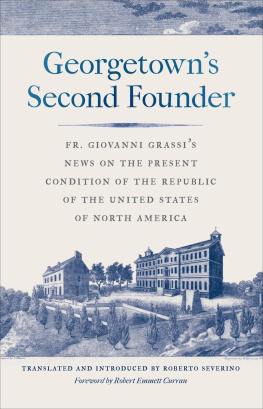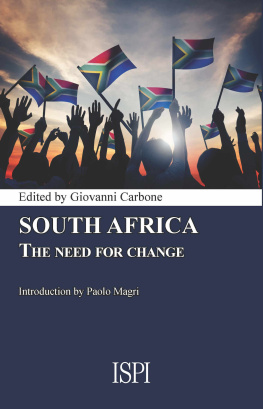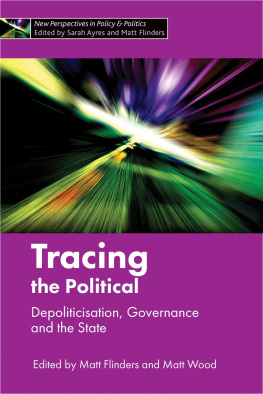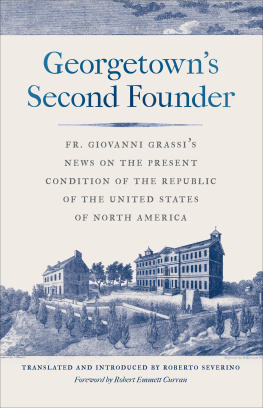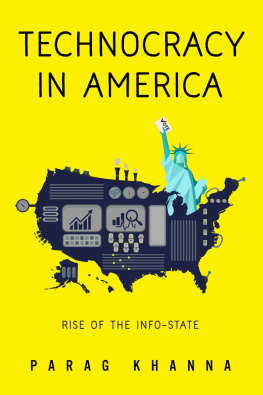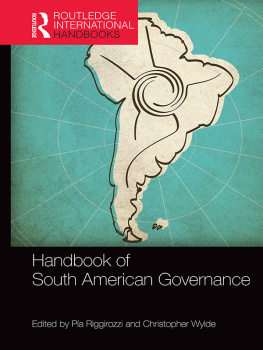Back cover
Coll. Il Politico e La Memoria
Titoli pubblicati (estratto) / Titres parus (extrait):
ANTIFASCISTES DE LMILIE ROMAGNE
RFUGIS EN FRANCE: 1922-1943.
Lexprience politique de lexil comme
hritage au service de la Rsistance italienne
Antonio Torrenzano
Gli STUDII CRITICI DI COSTUMI CORSI di SALVATORE VIALE.
Il processo di modernizzazione della Corsica nel XIX secolo
Marco Cini
I PROCESSI DI DEMOCRATIZZAZIONE
NELLAFRICA SUB-SAHARIANA
Alfredo M. Manhia
AUTOUR DE LA MMOIRE.
La Belgique, le Congo et le pass colonial
Rosario Giordano (a cura)
LA POLITICA DELLO SCANDALO NEGLI STATI
UNITI: UN LIMITE ALLA SOVRANIT POPOLARE?
Scenari dello scontro tra partiti dopo il Watergate
Stefano Luconi
*
* *
Opera realizzata e finanziata nellambito
del Progetto PRIN 2015 dal titolo
Trasformazioni della sovranit, forme di governamentalit e dispositivi
di governance nellera globale, ref. scientifico pr. F. Tuccari.
D IPARTIMENTO DI C ULTURE , P OLITICA E S OCIET
D ELL U NIVERSIT DEGLI S TUDI DI T ORINO
*
* *
Title
Giovanni Borgognone
TECHNOCRACY
IN AMERICA
STATE, GOVERNANCE AND EXPERTISE
IN AMERICAN POLITICAL THOUGHT
LHarmattan Italia via Degli Artisti 15 10124 Torino | LHarmattan 5-7 rue de Lcole Polytechnique 75005 Paris |
Copyright
La casa editrice LHarmattan Italia srl appartiene al gruppo internazionale LHarmattan ( www.editions-harmattan.fr ), con sede centrale a Parigi, ma presente, con una dozzina di filiali, in Europa e Africa.
Il catalogo accoglie opere pubblicate in italiano e in altre lingue (francese, inglese, portoghese, spagnolo) per favorire tramite le varie strutture del gruppo la diffusione allestero dei volumi (stampati con doppio ISBN). Il catalogo ha un taglio prettamente universitario e i titoli approfondiscono tematiche connesse alle scienze socio-umanistiche.
LHarmattan Italia ha rilevanza scientifica sia per la rete di cui dispone, che le permette di promuovere le proprie pubblicazioni in seno alla comunit accademica italiana e internazionale, sia per ledizione di collane i cui titoli sono sottoposti alle procedure di valutazione in adempimento ai criteri in uso.
English Translation by
Simon Dix
www.editions-harmattan.fr
LHarmattan (Paris) / LHarmattan Italia, 2020
EAN Epub : 978-2-336-91539-5
INTRODUCTION
In recent decades, the concept of governance has taken on an increasingly central role when transformations in modern sovereignty are described. The term has been virtually omnipresent in journalistic and academic discourse alike since the last part of the twentieth century: from the European Commission White Paper to the highly-anticipated responses in global governance in the face of major planetary issues such as climate change. But what exactly do we mean by governance? The central core of the concept is the idea of a decision-making process that does not rely on the principle of authority or hierarchies. From this perspective, new political and social theories and practices have been inspired by a conflict between government and governance. The former differs from the latter in that it is no longer centered around either the modern, vertical notion of sovereignty or state institutions; rather, it is primarily focused on criteria of rationality, competence and efficiency in decision-making processes. The idea of interaction between the public sphere and private parties is also often associated with governance (Sorensen, Torfing 2008; Bevir 2012).
Discussions on governance encompass multiple disciplines, from economics to international relations and from political science to sociology. Theory and practice offer different ways of defining the concept, starting out at a corporate organization level from corporate governance, which in many ways draws its inspiration from the transformation of a companys internal management system from the traditional ownership model to one based on the expression of management skills and how they interact. A second sphere that is relevant to both reflection and research is represented by forms of public deliberations at a subnational (urban governance) and national (domestic governance) level that are carried out on the basis of the composition of different objectives and interests, the stakeholders in which are public agencies and a variety of more or less structured social actors: territorial interest groups, companies, banks, trade unions and professional associations. Thirdly, there is a supranational level of governance that can also have a regional dimension, as in the case of European governance or inter-regional governance, which has been the subject of a new strand of politological research in recent times. Finally, as far as the post-Cold War international system is concerned, the notion of global governance has been used to identify the potential for a transnational decision-making process adopted through a convergence of sovereign states, international organizations and other non-state actors (Diehl 2001).
Within the framework of the dynamics of capitalist globalization, therefore, governance identifies the permeation and negotiation among diverse powers and interests (Stoker 1998; Fiaschi 2008; Roberts 2010). In this context, its underlying connotations have been captured by Sheldon S. Wolin in his 2008 book Democracy Incorporated . Wolin refers to the notion of inverted totalitarianism to describe the growing trend in American democracy to transform itself into a managed democracy based on hybrid forms of power in which a fluid, interaction between public and private powers, which may potentially be unbridled in relation to a displaced citizenry, is of crucial importance: the demos is not able to play an active political role and is reduced to a state of passivity before the managerial elites. Wolin reapplies the concept of totalitarianism to identify the trend of modern power toward control, intimidation and mass manipulation, while also explaining that unlike classic totalitarianism, inverted totalitarianism is less focused around public institutions; it is the outcome of the political maturation of economic power and the political demobilization of citizens. From this point of view, Wolin first saw the paradigm of a transformation of sovereignty in the American Superpower inspired by the economic model of governance. Secondly, and as a consequence, the use of the powers of technology and science makes it possible to fashion a redefinition of the demos whereby citizens become objects of manipulation rather than being actors.
The author concludes by observing that Democracy, whose culture extols the common and shared, is alien to all of these practices and their modes of communication (Wolin 2008, p. 162).
In many respects, the current outbreaks of populism and neo-nationalism can be explained as reactions to the form of governance we have just described in brief, using Wolins analysis as our guide. The word populism has become so inflated that many people have suggested expunging it from theoretical debate. However, if we wish to identify even a minimum common denominator of movements and leaders who are defined as populist, but are often quite different from each other, we might say that it primarily consists in a rhetorical style in relation to the fundamental political question of who must govern. All populists, whether they be on the left or on the right, argue that legitimate power must belong to the people, and denounce the betrayal perpetrated by the elites. As regards second level principles (what must be done, what policies must be pursued and what decisions must be taken), however, populism is like a chameleon, adapting itself to different ideologies and values (Norris, Inglehart 2019, p. 4).




